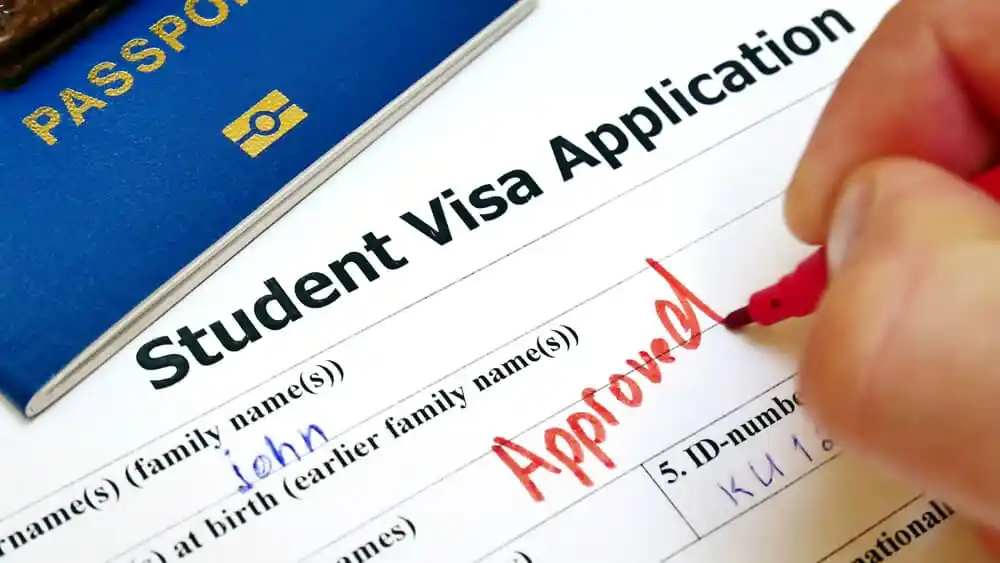
As an international student, the opportunity to study and work simultaneously is afforded. Canada is a popular destination for many international students because it offers them several opportunities such as learning and working. Whether on or off-campus, you can stay back and work after graduating, et cetera.
Over four hundred thousand international students decide every year to come to Canada and study for some of the reasons listed above. This article will cover everything you need to know to study and work in Canada. Information is power, and we’ll be providing you with that power.
Who is Eligible to Study and Work in Canada?
International students in Canada with a study permit who are enrolled full-time in a Designated Learning Institution (DLI) can work off-campus without a work permit.
This means you can work for any employer in any occupation anywhere in Canada. International students can also work on campus if they wish.
Working off-campus means working for any employer outside of the university or college.
Working on campus means working for any employer on the university or college’s campus, such as working for the university or college itself, for a faculty member (as a research assistant, for example), for yourself (self-employed, working on campus), for a student organization, or a private contractor is providing services on campus, for example, a gym or restaurant.
It is important to note that even if you plan to work while studying in Canada, you will still need to demonstrate sufficient financial resources when you apply for a study permit.
This means you have to show you have enough money to support yourself during your studies without working.
Anticipated future earnings will not suffice when demonstrating sufficient financial resources, so the fact that you may plan to be working while studying in Canada will not satisfy the condition to prove financial capacity before arrival.
The Social Insurance Number (SIN)
Your study permit will state whether you are permitted to work in Canada and the conditions of employment.
This statement enables you to apply for a Social Insurance Number (SIN) from Service Canada; obtaining a SIN is a crucial requirement before you can begin working while studying in Canada.
If your study permit is missing the statement, you need to apply for a SIN, and you can get your study permit amended for free.
While this can be done after you arrive, it’s much easier when you land, and your study permit is first issued.
When you arrive at Immigration, you can ask the officer about your permission to work if you are unsure about anything on your study permit.
You cannot work in Canada unless otherwise authorized if your study program is less than six months or if you are enrolled in English as a Second Language (ESL) or French as a Second Language (FSL) program.
Additionally, visiting or exchange students at a DLI are not permitted to work while studying in Canada.
It’s important to remember that you cannot start working while studying in Canada until you start your study program.
Study and Work in Canada
Since you have agreed on the right course to study in Canada and are readying yourself to get your study permit, this is the best time to know what is required to juggle work and study in Canada.
As stated initially, juggling work and study in Canada can be achieved through one of the following ways:
- Study and work in Canada while on or off-campus
Study and work as an intern or co-op student in Canada
Work in Canada as a Graduate
Canada grants international students the freedom to study and work in the country without a work permit. To be eligible, all you need to do is reach the primary requirements for the job offer.
However, if you desire to study and work in Canada as a co-op student or an intern, you must get a work permit first.
If you are a graduate in Canada, you would also need to apply for a PGWP (post-graduation) work permit to maintain your job position.
You also have the liberty of working part-time in Canada. This is because international students are given up to 20 hours weekly during school sessions to work.
Of course, you are equally allowed to work full-time, but this is permitted only during school breaks and holidays.
Advantages of Studying and Working in Canada
There are many benefits accrued to studying and working in Canada; some of them are:
- First, it would help increase your level of work experience in Canada.
- It is a source of financial assistance all through your study program
- It allows you the chance to meet up and engage with top professionals in your field of study and also in work.
How to Find a Job as an International Student
Securing a job in Canada as an international student is relatively easy.
It requires you to get a link from one of the several accessible job opportunities waiting for you. This can be accomplished by using the following means:
Social media and online job listing platforms like Monster, LinkedIn, Indeed, and others are too numerous to mention.
However, a properly drafted CV and cover letter would go a long way in aiding you to get a decent-paying job even during your school in Canada.
How Much Does It Cost to Study in Canada?
You can study in Canada for free. This can be achieved by applying for as many scholarship openings pertaining to your course of study.
Canada is also a country with one of the most affordable and prominent universities in the world at present.
It is a fact that almost every international student today professes that studying in Canada has been one of their best choices.
Conclusion
To summarize the article, studying and working in Canada is possible. Everything you need to know to study and work in Canada is covered in the article.
Such as knowing who is eligible to study in Canada, what the social insurance number (SIN) means, and how to secure a job in Canada while studying.


